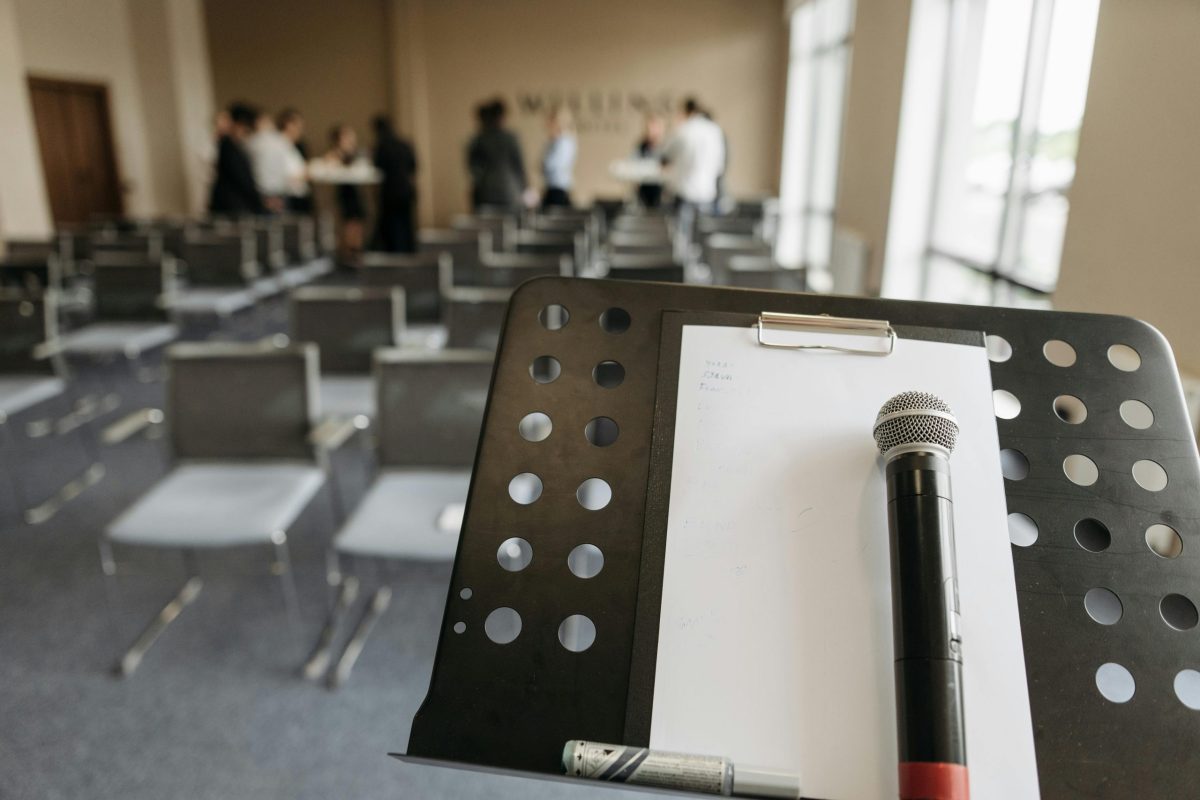Alongside research and client impact, TTS also contributed to important conversations about the academic and developmental pipeline of IO Psychologists. Presentations explored how mentorship, structured internships, and academic engagement can equip emerging professionals to thrive in a rapidly evolving workplace.
1. Mentorship of post-graduate IOP students: Building bridges between academia and industry
In an engaging panel session, Itumeleng Dzivhani, Prof. Bouwer Jonker, Gail Wrogemann, Dexter Nyamutumbu, Raeesah Ayob, and TTS’s Amogelang Chepape explored the critical role of mentorship in shaping the next generation of IO Psychologists.
The discussion was anchored in the work of SIOPSA’s Interest Group for Coaching and Consulting Psychology (IGCCP) and the Interest Group for Emerging Work Psychologists (IGEWP).
Why mentorship matters
The panel emphasized that mentoring is far more than a developmental “nice-to-have.” For postgraduate students and early-career practitioners, mentorship translates into greater career control and confidence, improved job search efficacy, and enhanced adjustment in the workplace.
It was noted that mentoring is positively associated with work engagement and organisational support, while buffering against challenges such as emotional exhaustion. From a practical perspective, mentorship also accelerates skill development, promotes reflective practice, and builds a professional identity rooted in ethical and resilient engagement with the world of work.
Closing the gap between theory and practice
A recurring theme was the need to bridge the space between academic preparation and industry readiness.
Panelists highlighted how mentees may benefit from exposure to real-world challenges, networking opportunities, and success stories from those already established in the field.
Mentoring provides essential support in navigating the evolving world of work, while its role in fostering emotional resilience during the transition from student to professional life cannot be underestimated.
Needs of emerging IOPs
Insights from focus groups and surveys, shared in the discussion, revealed the most pressing needs of emerging professionals::
- Improved access to internships and smoother transitions into professional practice.
- Stronger training in counselling skills, critical thinking, and data analytics.
- Practical exposure through workshops and applied learning opportunities.
- A more inclusive approach to placement processes, reducing perceptions of elitism and ensuring fairer access for diverse candidates.
From the higher education perspective, Prof. Jonker stressed the importance of networking, staying connected to professional communities like SIOPSA, and learning from the cautionary tales and tips of predecessors.
The mentor-mentee experience
For mentors, the mentorship relationship offers mutual growth, opportunities to refine their own skills, and the satisfaction of contributing to the profession.
For mentees, the rewards include professional exposure, accountability, empowerment, and a sense of community. Mentorship was described as creating a sounding board, fostering competence, and cultivating friendships that extend beyond formal structures.
The session closed with the emphasis that mentorship is not only about supporting individuals but also about strengthening the profession as a whole.
By equipping emerging psychologists with confidence, networks, and applied skills, mentorship ensures that IO Psychology continues to thrive as a field capable of responding to an evolving world of work.
2. The life cycle of the intern: Preparing emerging IOPs for a future-ready workplace
SIOPSA’s Interest Group for Emerging Work Psychologists (IGEWP) brought an energetic and insightful session to the conference, one which was well attended by TTS’s emerging and newly minted IOPs.
The session focussed on the internship journey as a critical life cycle for shaping the next generation of IO Psychologists.
Preparing for the future workplace
The session opened with a candid look at the current world of work: one marked by high unemployment rates, hybrid work trends, and the rapid rise of AI and digital technologies.
For interns, future readiness depends on continuous upskilling, building transferable skills, and cultivating a personal brand supported by evidence of competence.
Panelists urged attendees to remain curious, informed, and adaptable, recognising employability as a dynamic process rather than a fixed state.
Understanding internships
A key focus was the distinction between structured and unstructured internships. Structured programmes, aligned with HPCSA guidelines, provide clear objectives, supervision, and feedback, while unstructured ones rely more on self-direction.
Both offer learning, but the former ensures greater consistency and professional grounding. The panel also emphasised the importance of report writing, disciplined tracking of hours, and professionalism in navigating the internship journey.
Exploring professional domains
The discussion then broadened into the theory–practice gap and the structural challenges that interns, supervisors, and host organisations face. These include: Inconsistent supervision, administrative inefficiencies, and limited developmental plans. The panel proposed strategies for each party:
- Interns should be proactive, seek exposure, manage their time, and build peer networks.
- Organisations need to provide diverse work experiences, realistic workloads, and well-trained supervisors.
- Supervisors must offer regular feedback, model professionalism, and balance guidance with autonomy.
Importantly, the digital era is reshaping all these dynamics. AI, digital HR domains, and remote supervision were recognised as both challenges and opportunities.
The panel recommended integrating digital mentorship training, embracing virtual check-ins, and leveraging AI responsibly, while remaining vigilant about issues such as autonomy and data privacy.
Ethics and reflective practice
Ethical reflection was woven throughout the session, with speakers reminding interns that strong supervisory relationships and reflective practice are backbones of professional integrity. As workplaces evolve under digital pressures, interns must remain mindful of fairness, confidentiality, and their role as custodians of ethical practice within organisations.
Conclusion
Internships are not merely hurdles to be cleared, but transformative journeys that set the tone for professional identity, capability, and impact.
By taking ownership of their development, leveraging digital tools, and engaging in ethical reflective practice, emerging IOPs can step into a future-ready workplace with confidence and resilience.
Final thoughts
These academic and developmental sessions highlighted how mentorship, internships, and academic engagement are shaping the next generation of IO Psychologists. By building strong bridges between theory and practice, TTS is contributing to a profession that remains relevant, resilient, and future-ready.


